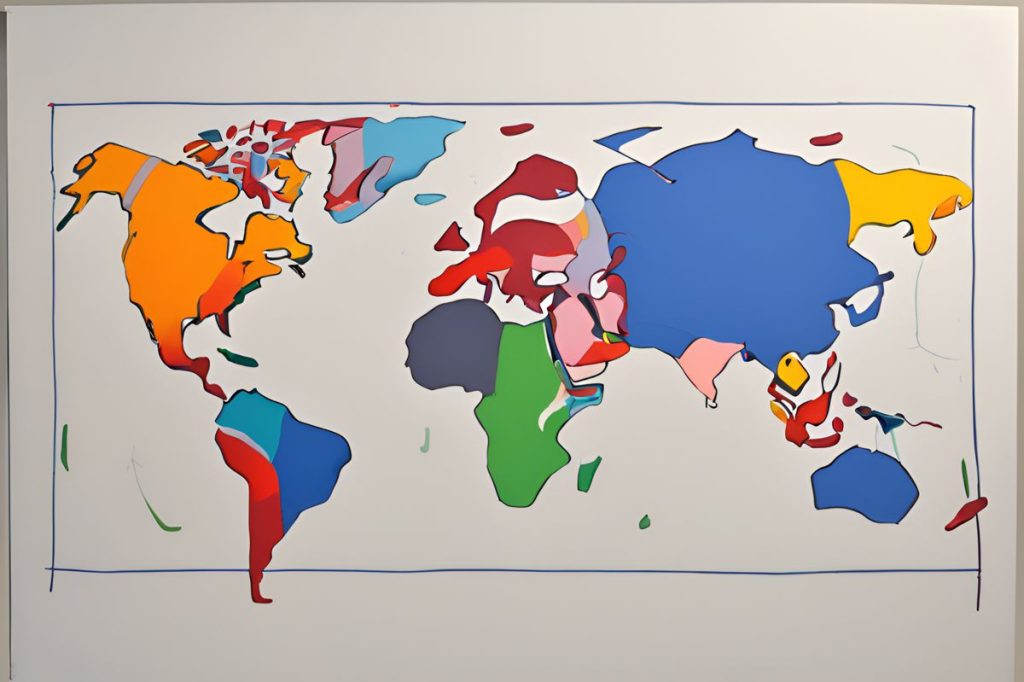The international response to the Iranian missile strikes on Israel has been a unified call for restraint, emphasizing the need to avoid escalation and maintain regional stability. Global leaders and political parties are prioritizing diplomatic dialogue to prevent a deterioration of the situation, which could have catastrophic outcomes for the Middle East and beyond.
What has been the international response to the Iranian strikes on Israel?
The international response to the Iranian missile strikes on Israel has been a unified call for restraint. Global leaders and political parties have emphasized the need to avoid escalation and maintain regional stability. Diplomatic dialogue and channels are being prioritized to prevent a deterioration of the situation, which could have catastrophic outcomes for the Middle East and beyond.
Global Leaders Advocate for Restraint
The political landscape was shaken as reactions poured in following the Iranian missile strikes aimed at Israel. Foreign Minister Constantinos Kombos was quick to voice his concerns on the platform X, highlighting the critical need to steer clear of further escalation and maintain regional stability. His call for moderation was not alone; political factions within the nation were prompt to chime in, emphasizing the gravity of the situation. Disy, a leading political party, decried the attacks as a perilous increase in tensions within an already volatile Middle East. They underscored the importance of prioritizing diplomatic dialogues and channels to prevent any further deterioration, which could lead to catastrophic outcomes for the region.
The sentiment for restraint was shared among other political groups as well. The Dipa party condemned the attacks, particularly those targeting civilian areas, and issued a strong statement warning against any increase in hostilities. They stressed that such actions could potentially draw in major global powers, escalating to a point of no return for all of humanity.
Calls for National Council Meetings
In the wake of these developments, Akel, another prominent party, has urged the government to convene a session of the National Council. The purpose of this meeting would be to thoroughly assess the perilous developments unfolding in the vicinity and to formulate a strategic response. The party’s leader, Stefanos Stefanou, insisted on the importance of such a gathering, even if discussions around the Cyprus issue are currently deemed unnecessary by the president.
Regional Impact and Diplomacy
The aftershocks of the strikes are being felt not just on a political level but also among the citizens of the affected and surrounding areas. There is a palpable concern about what this escalation means for the future of the region and the safety of its inhabitants. Calls for restraint and diplomacy are echoed across borders, with a collective understanding that any further escalation could prove devastating. Diplomatic efforts are now more important than ever in order to navigate through these tensions and seek a peaceful resolution to the conflicts that plague the Middle East.
With the international community keeping a close watch, the situation calls for careful diplomatic navigation to ensure peace and security not just for the immediate regions but also for the broader global context. The consensus is clear: open dialogue and de-escalation are fundamental in achieving a stable and peaceful regional environment.
What has been the international response to the Iranian strikes on Israel?
The international response to the Iranian missile strikes on Israel has been a unified call for restraint. Global leaders and political parties have emphasized the need to avoid escalation and maintain regional stability. Diplomatic dialogue and channels are being prioritized to prevent a deterioration of the situation, which could have catastrophic outcomes for the Middle East and beyond.
Why are global leaders advocating for restraint in response to the Iranian strikes on Israel?
Global leaders are advocating for restraint in response to the Iranian strikes on Israel to avoid escalation and maintain regional stability. The situation is already volatile, and further escalation could have catastrophic outcomes not only for the Middle East but also for the broader global context. Prioritizing diplomatic dialogue and de-escalation is essential in achieving a stable and peaceful regional environment.
What actions are political parties taking in response to the Iranian strikes on Israel?
Political parties within nations affected by the Iranian strikes on Israel are issuing statements condemning the attacks and emphasizing the need for diplomacy to prevent further escalation. Some parties are calling for national council meetings to assess the situation and formulate strategic responses. The consensus among political factions is the importance of avoiding any actions that could lead to a worsening of the situation.
How are citizens and regions impacted by the Iranian strikes on Israel?
Citizens and regions affected by the Iranian strikes on Israel are feeling the aftershocks of the attacks. There is a palpable concern about the future of the region and the safety of its inhabitants. Calls for restraint, diplomacy, and peaceful resolution of conflicts are echoed across borders, highlighting the need for careful diplomatic navigation to ensure peace and security in the region and globally.

